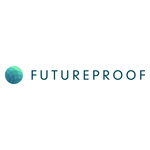FinTech Futures Jobs: The future of blockchain and the path to mass adoption
While Bitcoin is probably the first thing that springs to mind when the word blockchain is uttered, the scope of blockchain technology goes far beyond cryptocurrency.
In fact, the global blockchain market is set to grow $163.83 billion by 2029, up from $7.18 billion in 2022, exhibiting a CAGR of 56.3% thanks to its adoption by fintech, healthtech and Web3 firms and its use to prevent the counterfeiting of luxury goods.
Because of this growth, programmers and developers who are blockchain-savvy are in particularly high demand. In fact, according to the Blockchain Council, the demand for blockchain professionals grew 517% from 2018 to 2019, which is welcome news in light of the recent rounds of tech layoffs globally.
Building trust
While tech professionals are familiar with the opportunities blockchain presents, companies outside of the tech sphere still view tokenisation with trepidation, something John Ward, CEO of ServBlock, a blockchain biotech software company that digitises material traceability, attributes in part to the negative press surrounding cryptocurrency.
“It’s kind of a bit of a double-edged sword, but the cryptocurrency industry has spurred on a lot of adoption and a lot of the development of technology. But it involved maybe some bad actors or some scandals that have happened around the blockchain space that have tainted the true value of what the technology can bring,” he elaborates.
Speaking recently at the Dublin Tech Summit as part of a panel, Ward also advocated that moving away from this link with crypto and money is essential for the mass adoption of blockchain technology within different sectors, particularly the pharmaceutical industry, where traceability and regulation is a concern.
“In our case, we’re exchanging trust. The way we describe this to our clients is that it’s a digital certificate,” he says. “In the pharmaceutical and raw materials supply chains, we currently test materials and have the data represented on a certificate. In our case, we’re tokenising this data and building the trust back into the blockchain. Not only does it give full traceability of the data, but also of the goods moving through the value chain.”
Back to basics
However, Ronit Ghose, head of future of finance at Citi, who joined Ward and others on stage during the discussion, recommended a slightly different approach.
“Forget blockchain, just think about money,” he says. “We interact with it from the time we wake up to the time we go to bed, but most of us don’t think about it. It’s just a means to an end; we’re buying food with it, we’re using it for transport. We don’t think about it. So 99% of the population don’t think about money to get money to do something else.”
He also proposed that regulation is key: “What’s intrinsic about blockchain is the transfer of value. It’s a way to move, store, transact and build things, but it’s about value. The challenge of blockchain is when it comes to money or value, it needs to be regulated.”
So, whether you’re currently working within the blockchain space or want to carve out a place in its future, the FinTech Futures Job Board is the best place to start your search. It features thousands of jobs at companies that are actively hiring, like the three below.
Senior Back-end Software Engineer, Payments, Blockchain.com, London
Blockchain.com is the world’s leading software platform for digital assets. It is looking for an experienced Back-end Software Engineer to build distributed event driven services to integrate new payment methods, reduce latency and increase payment success rates.
The ideal candidate has strong knowledge of distributed systems design, is proficient in coding on the JVM (one of Java, Kotlin and Scala), understands the importance of scalability and reliability and has experience integrating FIAT payment methods.
Fraud Operations Analyst, Wirex, London
Wirex’s vision is a world in which everyone can enjoy the benefits of digital currency. The company is looking for a Fraud Operations Analyst to sit within its financial crime compliance team with a focus on fraud operations.
The purpose of the role is to reduce fraud by proactively identifying, preventing and mitigating fraudulent activities, chargebacks and other financial crimes that may pose a risk to the organisation.
The analyst plays a crucial role in investigating financial crimes and safeguarding the organisation’s financial interests and maintaining the trust of its customers and stakeholders.
See the full job description here.
Cryptography and Blockchain Researcher, EY, London
As part of EY’s global blockchain team, an innovative and collaborative group of technical developers, cryptographers, mathematicians and business strategists, the Cryptography and Blockchain Researcher will have the opportunity to drive the creation of advanced mathematics for blockchain technologies and to enable high-value offerings in one or more service lines.
You will also help design new applications and develop advanced protocols and cryptographic tools relevant to blockchain.
For hundreds more opportunities across fintech, visit the FinTech Futures Job Board today.












































